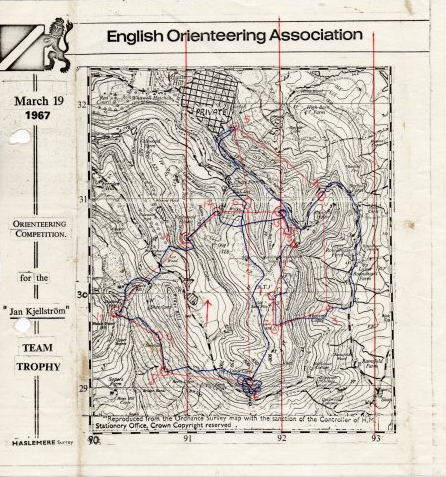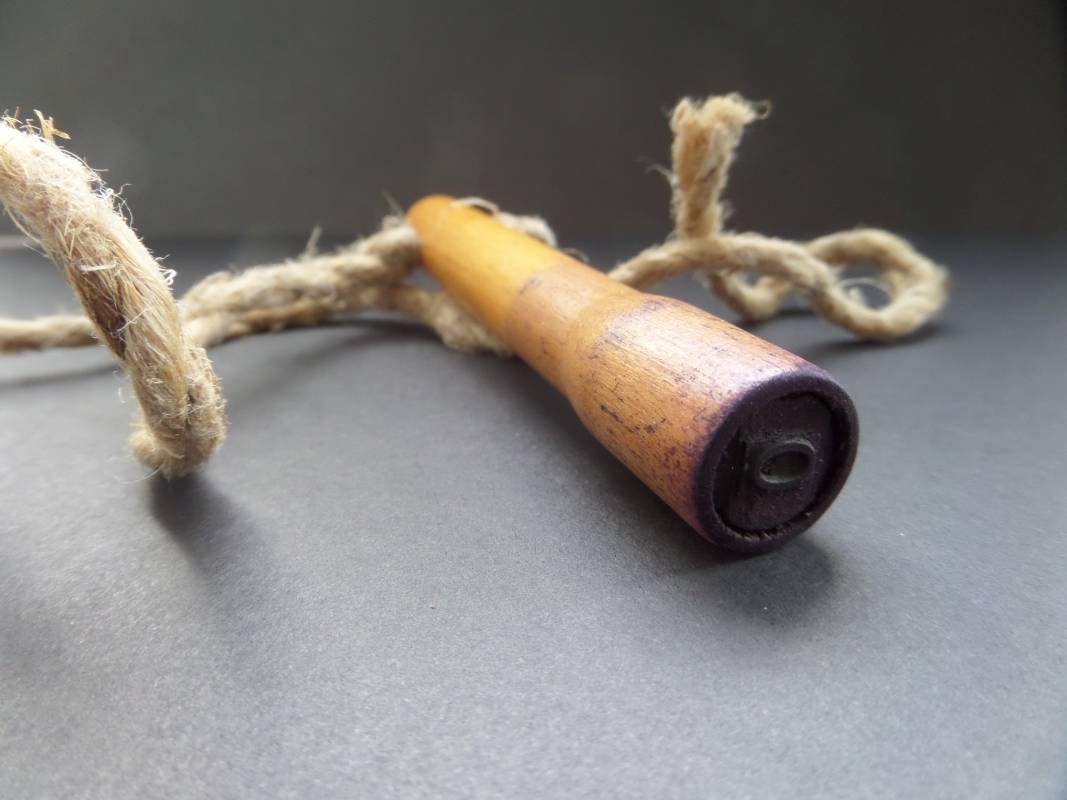By Arthur Vince, member of Cornwall Orienteering Club (KERNO)
Wishfully looking back 43 years to a simpler time when there were two courses and 89 competitors – 82 men and 7 women. The Jan Kjellström Trophy was presented by the English Orienteering Association to the winning men’s team of four in an individual race, IK Stern from Gothenburg, who won by an hour and a half from the Royal Military Academy Sandhurst. Jan, the son of Alvar Kjellström of Silva Compasses, had been killed earlier that year in a road accident; he had been a mentor to the pioneers of orienteering here and had given British orienteers an idea of what they could attain. This connection to Sweden resulted in a party of 26 competitors from that country, making the event the first true international in England.
The race was held in the hills SE of Haslemere in Surrey, with the start at GR SU 922 306, using a black and white copy of the OS 1: 25,000 map. Competitors had to copy their course from a master map in race time – standard practice then. The 10.1km men’s course had 14 controls with descriptions such as The Disused Track, The Valley Side, The Earthworks and The South Flank of the Spur. The last resulted in comments about the control being too high, too low, too far East and too far West. The event details I have do not record the sort of control markers used, nor the type of punches. Self-inking stamps were in use at the time, a development from writing down a code on the marker, which was rather larger than today at 18-24 inches square.
For the entry fee of 10 shillings (50p these days) for a team of six, of which four counted for the team results, competitors got a course which took the winner 1.36.55; the slowest, in 60th place, took 4.34.55. Twenty-two retired or missed controls. Gordon Pirie, having taken to running in the woods after his world-class 5000m career, beat the Swede in second place by nearly 9 minutes. In the shorter women’s race Jenny Tennant, then of Southern Navigators (SN), now of QO, won by over 4 minutes in 1.47.10 from four Swedes; two Brits did not complete the course.
The organiser was John Disley of SN, and the courses planned by Chris James (now of North Gloucestershire Orienteering Club) assisted by Tony Walker, who went on to become the first British Orienteering Federation Professional Officer. Three names in the results stand out for me: Mike Wells-Cole finishing in third place for the Royal Marines, who died tragically young in 1976; Ted Dance, running for the Northern OA, who broke the Pennine way record in under five days in 1969 with Denis Weir; and Robin Harvey, who later founded the eponymous map firm with his wife Sue. Three of the clubs listed are still going strong, RMA Sandhurst, now an active unit within British Army Orienteering Club (BAOC), Mole Valley M&CFRS, and Southern Navigators. The members of others like Nutfield Striders later went their different ways.

This article first appeared in CompassSport APR2010 (Vol.31/2) issue.

Memories of the JK Online
Have you got any old photos, maps, stories, snippets to share? Over the JK week, British Orienteering will publish as many as possible so we can share our experiences and understand more about this fantastic event together. Email to: info@britishorienteering.org.uk
Share your memories online using the hashtag #JKMemories
Latest News

Job Opportunity: Chief Executive Officer (CEO) - British Orienteering

Now available: A draft copy of the Rules of Orienteering effective 1/01/2025

